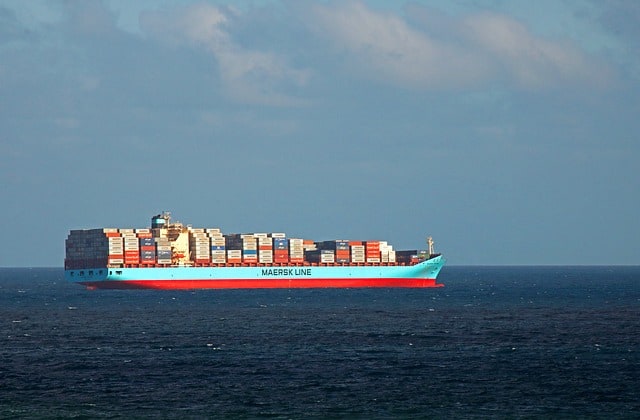By Ingo Ploger, entrepreneur and President of CEAL Brasil
Post-pandemic Latin America lies between sustainable development and ESG, but ESG is missing another E
Brazil, as host of the United Nations Conference on Environment and Development – also known as the Rio de Janeiro Earth Summit, the Rio Summit, the Rio Conference, and the Earth Summit, -, was the first signatory of that climate commitment.
It symbolized that the developing and developed world were committed to sustainable development, so that the future generations could live on a healthy planet.
This conference and subsequent ones, such as the 1997 Kyoto Protocol, also signed by the nations of Latin America and very late by Russia, was the understanding that sustainable development occurred in the economic, social and environmental, in that order, because without the economic part, the social and environmental aspects would not be sustainable. The social before the environmental, because those who are hungry think first of themselves.
This concept did not emerge from the beginning, but it was strongly fought by developing countries. Europe at that time understood sustainable development, in a far more environmental way than social and economic, especially because the latter were not priority problems. The economic aspect, with the formation of the European Union and the principles of Maastricht, was on the right track, and the social was also, somehow or another, anchored in the social network that the bloc of countries that made up the EU had resolved.
That leaves us with the environmental aspect, because it was clear that the European way of life was not sustainable in the long term. There were various emissions reports, and also lifestyle reports, which showed that if the world were to adopt the European lifestyle, we would need 3 planets 1 /.
The situation in the United States was worse. With a more wasteful lifestyle, it required 5 planets if the 7 billion inhabitants wanted to choose the same lifestyle.
As the United States was always reluctant to these agreements, being the only country that did not sign the Kyoto Protocol, the debate was between Europeans and developing countries.
China became the largest emitter of greenhouse gases, but defended himself, arguing that China’s per capita emissions were much lower than those of Europeans and Americans.
It was a Brazilian, South American initiative that arose with the proposal to monetize the capture of greenhouse gases through a clean development mechanism (CDM). The CDM had such a complex procedure of additionality, among others, that very few initiatives were successful. But the pressure to have a mechanism to monetize the climate sustainability effort was such that a CO2 Exchange was created in Chicago that even traded a ton of CO2 at US$9.00, while the EU even offered 30 euros/ton.
But since it couldn’t be any other way, without effective governance, projects appeared, with little or no governance and the credibility of these procedures became doubtful, in addition to the extremely bureaucratic procedures that buried the initiative to monetize the socio-environmental effort. Thus continued the subsidies and tax compensations, which benefited the developed countries.
In this pause, pressures arose for the developed countries that had already been exaggerated emitters and had not reached the Kyoto targets, and now they were seeking the same commitment from developing countries in their industrial policies. They asked for reports and certificates of social and environmental responsibility to be able to access their markets for both products and services and capital.
The Kyoto commitment proved insufficient, especially since the developing countries themselves were unable to meet the targets set, and the Paris Conference seemed to set new targets for the coming decades.
The Paris plan set targets for emissions and the earth’s temperature and entered its first phase, but with the Trump administration there was a breach of this agreement by a major actor, the United States.
By weakening the Accord, others remained engaged, while popular and consumer pressure increased and became a relevant political element. What was previously reserved for select groups and NGOs is now becoming consumer preference, completely changing the characteristics of markets.
The European Union reacted and adopted policies for electric mobility, sustainable energy and movements against diesel. China bet on a gigantic effort to be a protagonist of globalization and sustainability and promotes an industrial policy to boost electric vehicles, solar energy, among others. Banks came together in a Basel Accord to promote green finance.
The first, more coherent and robust funding initiatives geared towards sustainability appeared, but with a new element of governance. ESG (Environmental Social and Governance), which offers financial advantages such as lower interests and preferences for those who adhere to its principles.
The ESG that emerged again from Europe, seeks to give transparency and preference to what the bloc has always needed, the commitment to the environment and the social, placing governance as a differentiating element to ensure its credibility.
Europe made new commitments for 2030 and 2050. But it soon realized that its production chains are global: it is of little use to commit to those goals, if imported components and parts come from unsustainable sources. An attempt was made then to establish a policy of commitments with the global production chain, which will only work with reliable partners.
The trade and communications war between the US and China continues, and Europe adopts the double standard policy, that is, for China it has one standard, and for others like Latin America, harder standards.
Then came the recent wildfire season. In the United States, Australia, Europe and unfortunately also in the Amazon and the Pantanal. The latter, because they affected the most iconic natural reserves, and the Brazilian inability to address this issue generated a negative impact worldwide. And now they are part of ESG, much more for Latin America than for other regions. Remembering that now it is at the will of the consumer.
ESG, and now more than ever the G, become important!
With the defeat of Trump and the victory of Biden in the U.S., and with the return of the U.S. to the Paris Agreement, it seems that we will have the revitalization of the sustainability agenda.
A big step in the right direction, but not quite!
The pandemic has left us in one fell swoop, less global, more digitized, poorer and few richer!
Countries, especially developing countries, will emerge from the pandemic much poorer and more indebted, in need of investments for the health of their populations and for the resumption of their economic growth. This will translate into much more fragile economies. Developed countries will have more room to recover faster and stronger.
Therefore ESG lost what it had to create sustainable development, its first vector: economic sustainability!
In Germany, there is a debate on curbing indebtedness 2 / while in Brazil and other countries, the economy becomes sustainable by reducing deficits and debt, putting the economy and the population under pressure.
Therefore, ESG is missing another E.
It is not enough to have environmental and social governance if we do not have economic sustainability. This equation goes back to the good principle of sustainable economic, social and environmental development. Perhaps it is time to talk about EESG 3 / or E2SG, to share the effort for a more sustainable world for all in a fairer way.
We have good reasons to promote EESG, which today may have more transparent, differentiated and more justly valued mechanisms.
The European Union, in a recent letter from its regulator the European Securities Markets Authority (ESMA), expressed its concern about the non-regulation of ESG criteria that show how far we have yet to go 4 /.
Certainly the products that have an EESG certification would need to have preferences in access to markets, in a strong way. This could be fair compensation for the effort of Latin America in EESG: to receive access to the markets of developed countries through the EESG preference. It will not be by reviewing the Agreements – like the EM-EU -, which would take decades to negotiate. We urgently need humanization!
In times of crisis, we need first of all democratic and human solidarity.
Perhaps Biden’s new policy offers us hope in this regard.



